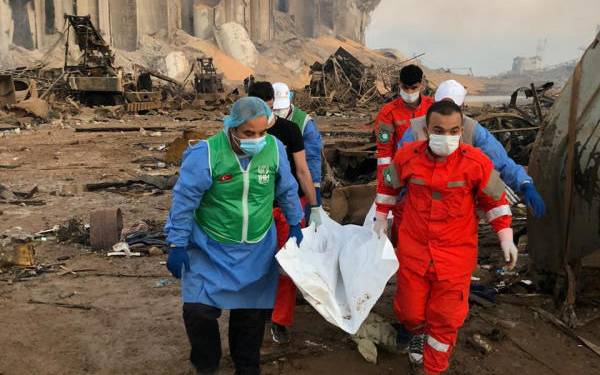×
The Standard e-Paper
Kenya’s Boldest Voice

Members of Turkey's Humanitarian Relief Foundation (IHH) help local medics to carry a casualty at the site of Tuesday's blast in Beirut's port area, Lebanon August 5, 2020. [Picture: Humanitarian Relief Foundation (IHH)/Handout via Reuters]
For the seven years that Fred Kamau has worked as a security officer at a school in Beirut, Lebanon, his days have been slow and uneventful.